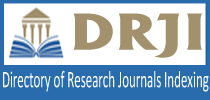
Makaleler Açık Erişimlidir ve Creative Commons Atıf-GayriTicari 4.0 Uluslararası Lisansı ile Lisanslanmaktadır.
Turizm mekanlarını post-modern coğrafyalarla birlikte düşünmek.
Fatih Volkan Tırı1, İsmail Kervankıran21Süleyman Demirel Üniversitesi, Sosyal Bilimler Enstitüsü, Isparta, Türkiye.2Süleyman Demirel Üniversitesi, İnsan ve Toplum Bilimleri Fakültesi, Isparta
Bu çalışma; beşerî coğrafyada 1980’lerden beri süregelen bir eleştirel paradigma olan post-modern coğrafya ve post-modern görünümlerin turizm mekanları üzerindeki tezahürlerini anlamaya çalışmak amacıyla hazırlanmıştır. Bu kapsamda, ilgili literatür üzerinden çalışmanın sınırları içerisinde kalan post-modern teori ve post-modern coğrafya literatürü incelenmiştir ve bu incelemeler sonucunda sosyo-ekonomik durumların ve diğer birçok parametrelerin zaman içerisinde geçirdiği kırılmalar, mekanlar üzerinde somutlaşarak karmaşık yapıları beraberinde getirmiştir. Bu bağlamda çalışmada ele alınan bazı post-modern görünümlerin ve post-modern coğrafyaların neler olduğunu, nasıl bir ilişkisellik çerçevesinde şekillendiklerini ve bu çerçevede şekillenen görünümleri turizm mekanları üzerinden aktarmaya çalışılmıştır. Bu çalışmanın temel motivasyonu, turizm mekanlarının yeniden yapılanmasını ve üretilmesini post-modern coğrafyalarla birlikte düşünmenin gerekliliğini tartışmaktır.
Anahtar Kelimeler: Turizm Coğrafyası, Post-modern Coğrafyalar, Turizm, Mekân
Thinking tourism spaces together with post-modern geographies.
Fatih Volkan Tırı1, İsmail Kervankıran21Süleyman Demirel University, Institute of Social Sciences, Isparta, Türkiye.2Süleyman Demirel University, Faculty of Humanities and Social Sciences, Isparta
Post-modernism, along with its relational foundations, is increasingly permeating our lives and transforming our daily routines. Therefore, the spatial planes mirror these changes, and the geography discipline encompasses this situation within its research domain. From this point of view, this theoretical study has been prepared to try to understand the manifestations of post-modern geography and post-modern views on tourism spaces, which have been a critical paradigm in human geography since the 1980s. In this context, post-modern theory and post-modern geography literature within the boundaries of the study were analyzed through the relevant literature. The fractures of changing socio-economic conditions and many other parameters over time have brought about complex structures by materializing in spaces. We have attempted to comprehend the meaning of post-modern geographies and their formation within the framework of relationality. Additionally, we have attempted to communicate the perspectives formed within this framework through tourism spaces. The main goal of this study is to discuss the necessity of considering the restructuring and production of tourism spaces in conjunction with post-modern geographies.
Keywords: Tourism Geography, Post-modern Geographies, Tourism, Space.
Makale Dili: Türkçe











